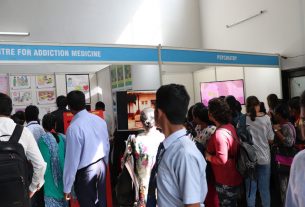NDPS Act: Decriminalising drug possession and implementing rehabilitation
The central government plans to assist victims of addiction to undergo rehabilitation and decriminalize possession of small quantities of drugs for personal use under the Narcotics Drugs and Psychotropic Substances (NDPS) Act.
The central government along with The Social Justice and Empowerment Ministry, Revenue Department and Health and Welfare Ministry is considering suggestions for amending the NDPS Act.
The Mumbai High Court in a recent case said that individuals caught with small quantities of drugs should be addressed as victims. The Social Justice and Empowerment (SJE) Ministry additionally proposed rehabilitation as a provision under the NDPS Act.
The NDPS Act, 1985 prohibits any person from possessing, manufacturing, cultivating, sale, production, distribution, transportation, or consumption of any narcotic drugs or psychotropic substances.
This comes to light as the cases of drug possession in India increase by 50 percent, according to a report by the National Crime Records Bureau (NCRB). NCRB reported 33,246 cases in the country that were registered as possession of drugs for personal use or consumption under the NDPS Act in 2020.
Sunkara Sathyanarayana, ex-Commissioner of Police said, “The NDPS Act is a stringent act and should not be meddled with. Any changes in the act will affect the control of drugs. Vigilance and awareness are the only ways of reducing drug flow in a state. The police and excise departments play a vital role in controlling this. NGOs should come together with government organisations and plan for awareness around consumption and possession. This will help in curbing an increased use of drugs.”
One thousand grams of ganja, 20g of cocaine and 5g of heroin falls within the limit of small quantities for possession under the NDPS Act. Individuals caught with small amounts are subject to rehabilitation instead of a jail term.
Neeraj, a resident, said, “Drugs are the downfall of society. Consumption of drugs or possession should be off-limits for anyone as it is illegal in the country. Awareness of the misuse of drugs and overdose of drugs is very important. A lack of knowledge regarding the same triggers an increase in usage.”
About the Mumbai High court’s decision, Shyam Agrawal, an advocate at State Human Rights Corporation said, “Individuals should fear possessing drugs rather than being given a chance to justify possession. The emphasis on the quantity of drugs will lead to everyone using them within the said victim limit. The overall purpose of drug possession is to consume or sell, and all of these are deemed illegal under the NDPS Act.”
About the SJE Ministry’s attempt to implement rehabilitation, Dr. Mallika Raghavendra, addiction psychiatrist said, “Rehabilitation always helps but is not the answer all the time. The severity of addiction differs from individual to individual, some might get addicted in two months, and the others might take two years. A generalised approach for all can’t be successful.”
The law is there to curb usage, charging someone with it is burdening them to prove their innocence, says Aniket, a law student, “Revamping an aspect of the law will help with fair judgment- Innocent until proven guilty. Without the idea of rehabilitation in the law then there is no scope for dialogue as it increases the stigma around it,” he added.
An official from the Narcotics Control Bureau (NCB), Bengaluru remains unavailable for comment. Reason being, the discussion of amending parts of the act.





Good article. A law should be made very strong that none should be spared. Fight against drugs